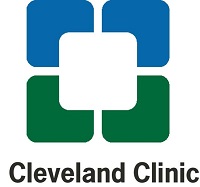Brugada Syndrome

Overview
What is Brugada syndrome?
Brugada syndrome is a condition that causes an abnormal heart rhythm in the heart’s lower chambers (ventricles). This irregular heartbeat can cause fainting (syncope) and lead to sudden cardiac death (SCD).
Brugada syndrome is a rare disease that is inherited (genetic) from at least one parent. It was first discovered in 1992. A lot has been learned about the condition since then, but there are still many unanswered questions. Researchers continue to study Brugada syndrome and test new treatments.
What causes Brugada syndrome?
Brugada syndrome is often caused by a genetic mutation. The defect changes the way the heart’s ion channels work (a problem called a channelopathy).
Who is at risk of having Brugada syndrome?
Brugada syndrome is more common in males than females. In fact, men are 8 to 10 times more likely than women to have the condition. All patients with a family history of SCD or Brugada syndrome should be screened for the disease.
Do You Need to be Screened for Brugada Syndrome?
Brugada Syndrome is a medical condition that can be passed on from generation to generation. It is important for you to be screened for this condition if you have a first-degree relative with Brugada Syndrome. First-degree relatives are your parents, siblings and children.
The first step is to tell your doctor that you have a family history of this condition. He or she may want to do diagnostic tests to check your heart. If these tests are positive, you should be seen by a cardiologist who is familiar with this condition.
- For a list of cardiologists who treat patients with Brugada – visit our Inherited Arrhythmia Clinic
Symptoms & Diagnosis
What are the symptoms of Brugada syndrome?
Symptoms of Brugada syndrome can include:
- Ventricular tachyarrhythmia (a fast, irregular heart rhythm that begins in the lower chambers of the heart)
- Fainting (syncope)
- Heart palpitations (can feel like a fluttering or a flip-flopping in the chest)
- Atrial fibrillation (a fast, irregular heart rhythm that begins in the upper chambers of the heart)
- Cardiac arrest (this may be the first symptom)
The symptoms of Brugada syndrome are similar to many other conditions. It is important to see a doctor to find out what is causing the symptoms.
Many people with Brugada syndrome do not have any symptoms. Sometimes the condition is found during an electrocardiogram (ECG). An ECG is a recording of the heart’s electrical activity. People with Brugada syndrome often have a recognizable pattern (Brugada pattern) on the ECG printout.
How is Brugada syndrome diagnosed?
Your doctor will perform a physical examination, listen to your heart and order tests. Tests used to diagnose Brugada syndrome include:
- 12 Lead Electrocardiogram (ECG) – This test records the electrical activity that makes the heart beat. The doctor can check for a Brugada pattern.
- ECG with medication – Brugada syndrome is caused by changes in the heart’s ion channels, so before doing an ECG, your doctor may give you medication that helps the Brugada pattern “show up” on the ECG print-out.
Based on your ECG results, you may also have:
- Electrophysiology (EP) testing – Catheters are placed inside the heart through a patient’s femoral (leg) veins. These catheters are able to measure electrical activity from inside the heart. The test is used very selectively and only in patients whose diagnosis is unclear after earlier tests.
- Lab tests – Used to check for a normal potassium-calcium balance and to rule out other causes of an abnormal heart rhythm.
- Genetic testing – To confirm a specific gene mutation that indicates Brugada syndrome. Other family members may want to be tested for this mutation.
Treatment Options
What treatment is available for patients with Brugada syndrome?
If you have Brugada syndrome and a history of ventricular arrhythmias or an aborted SCD, you are considered to be high risk. Your doctor will likely recommend that you get an implanted cardiac defibrillator (ICD).
What is the outlook for patients with Brugada syndrome?
People with Brugada syndrome who have symptoms but are not receiving treatment have a high risk of SCD. Patients without symptoms and with a normal ECG at baseline have a much lower risk of SCD.
Do patients with Brugada syndrome need special care?
If you have been diagnosed with Brugada syndrome, you should be evaluated and treated by an experienced team that includes several different types of specialists. This approach helps ensure that you get the best possible care. The team should include the following:
- Electrophysiologist - A doctor who specializes in diagnosing and treating patients with heart rhythm problems.
- Genetic counselor - A specialist who studies genetic patterns to identify gene defects that can cause problems.
- Primary care physician – Your “regular” doctor who can provide general follow-up care and monitor your medications.
Story Credit: http://my.clevelandclinic.org/health/articles/brugada-syndrome


